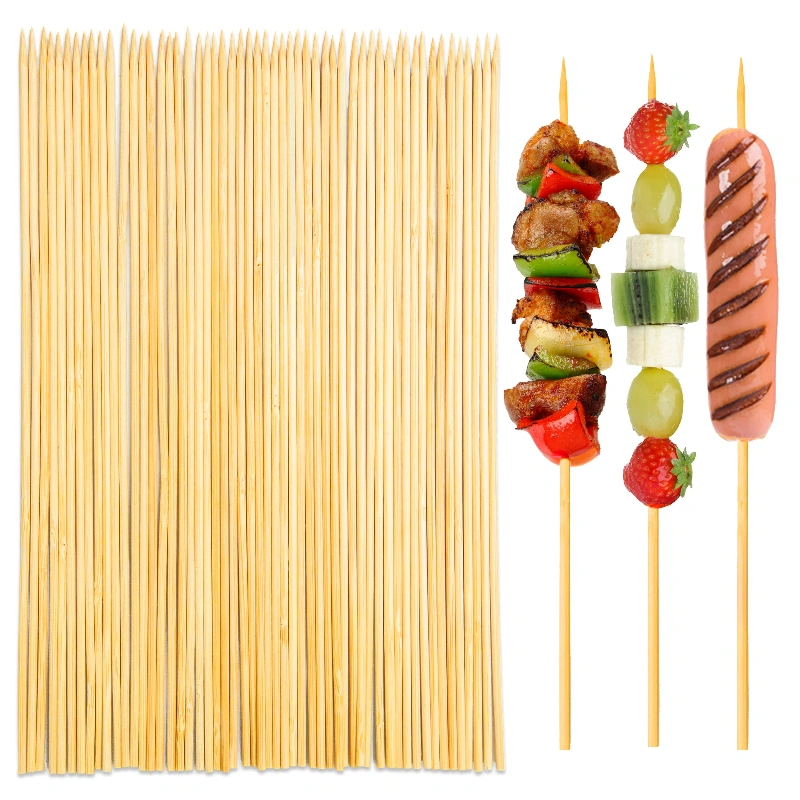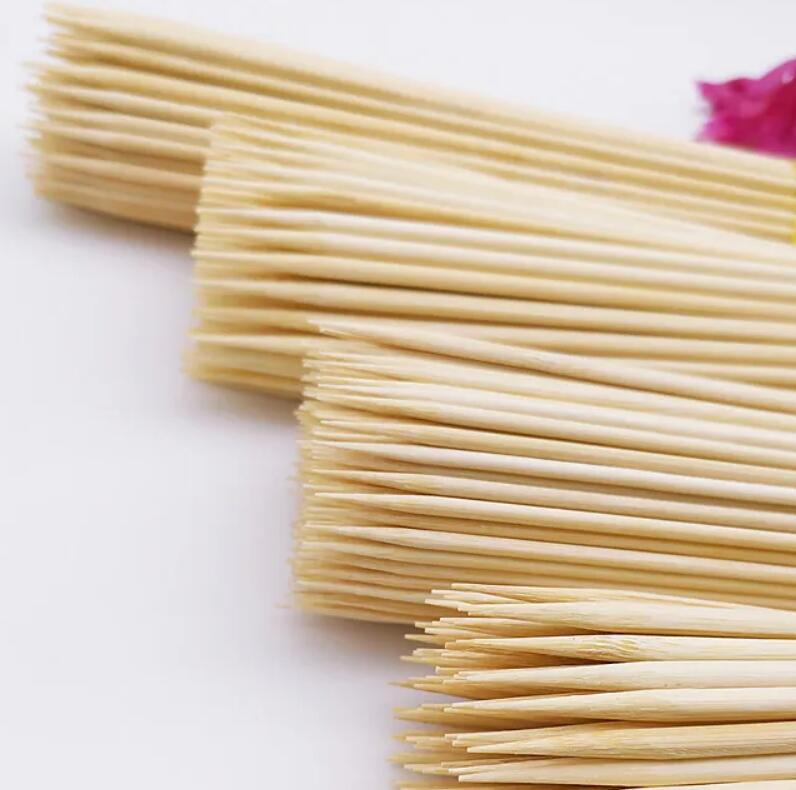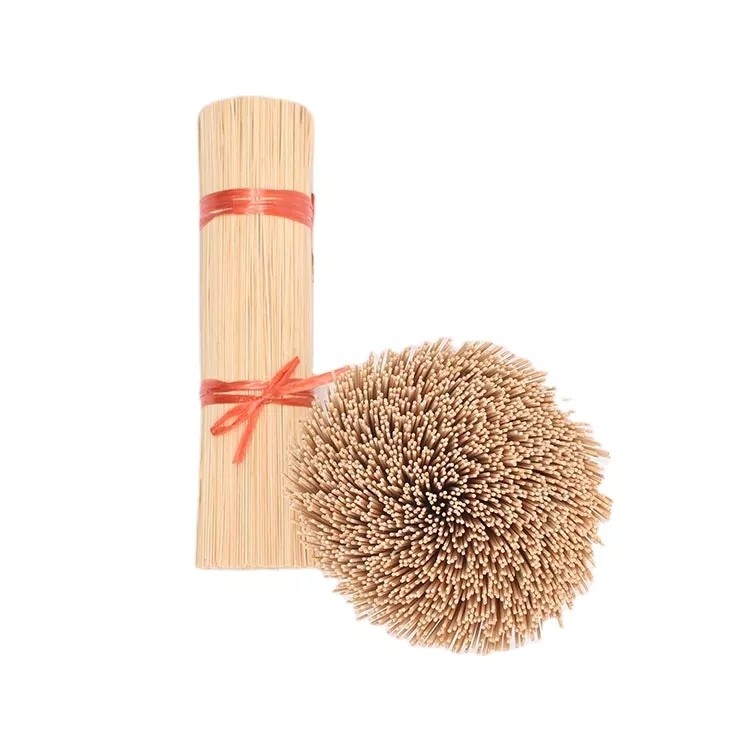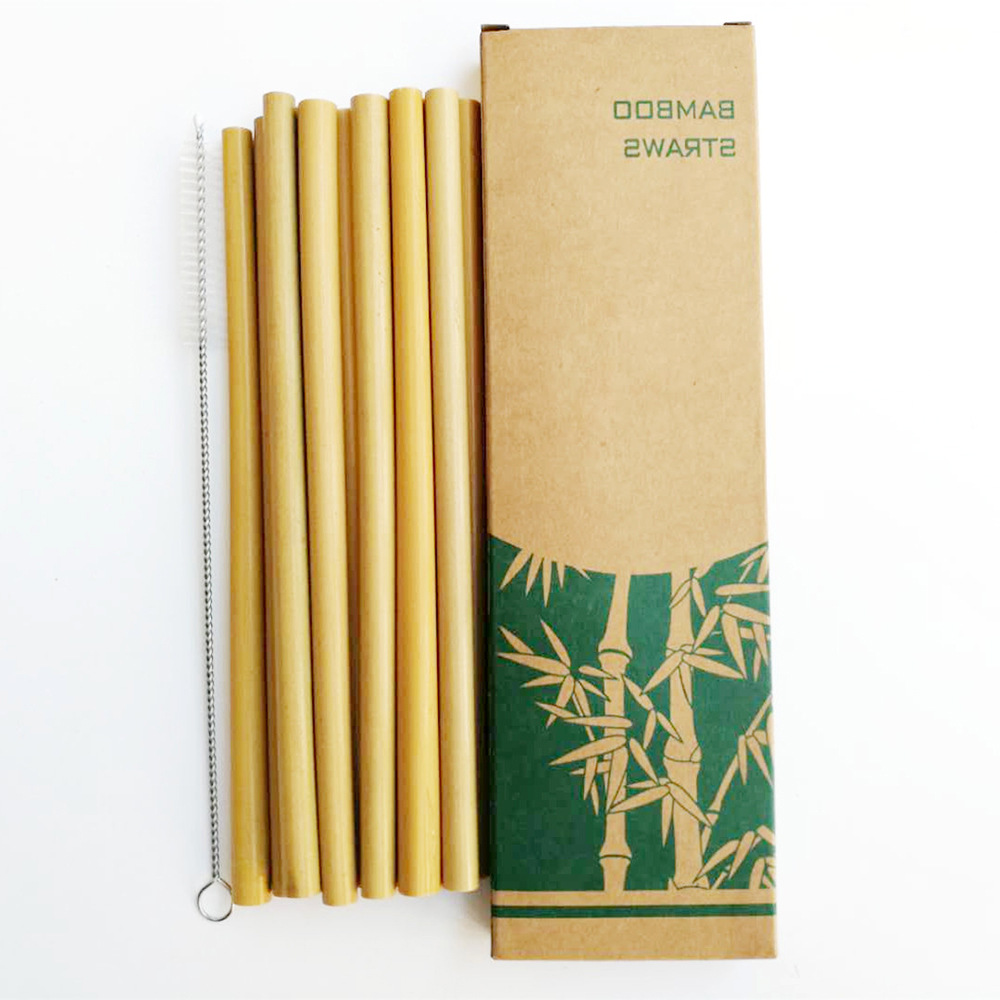Do You Need to Soak Bamboo Skewers?
Yes—soaking bamboo skewers before grilling is a non-negotiable step to ensure safety and optimal cooking results. This practice directly addresses one of the biggest risks of using bamboo skewers: burning and charring, which can ruin food, release unpleasant smoke, or even cause the skewer to break mid-cooking. Below is a detailed breakdown of why soaking is essential, how to do it properly, and extra tips to enhance its effectiveness.
1. Why Soaking Is Critical
Bamboo is a naturally dry, porous material—this makes it highly flammable when exposed to the high heat of a grill (typically 350–500°F/175–260°C). Without soaking:
- Rapid Burning: Dry skewers can ignite or char excessively within minutes, especially the thin, exposed ends. Burnt bamboo may impart a bitter, ashy taste to your food (e.g., kebabs, grilled veggies) and create unpleasant smoke that overwhelms the flavor of your ingredients.
- Skewer Breakage: Charred bamboo becomes brittle and prone to snapping. If a skewer breaks while cooking, your food can fall into the grill, leading to waste or uneven cooking.
- Reduced Durability: Dry skewers are also more likely to splinter when piercing food (e.g., tough meat or firm vegetables), increasing the risk of splinters in your hands or mouth. Soaking softens the bamboo slightly, making it more flexible and less prone to splitting.
2. How to Soak Bamboo Skewers Properly
Follow these steps to ensure your skewers are fully prepared:
- Use Cold Water: Submerge the skewers completely in a bowl or container of cold water. Cold water is absorbed more slowly and evenly by the bamboo, ensuring the entire skewer (not just the surface) becomes saturated.
- Soak for At Least 30 Minutes (Up to 2 Hours): 30 minutes is the minimum time needed to saturate thin skewers (3–4mm diameter). For thicker skewers (5mm or more) or skewers that have been stored in a dry environment (e.g., a pantry for months), soak them for 1–2 hours to ensure maximum water absorption.
- Weight Them Down (If Needed): Bamboo skewers are lightweight and may float to the surface of the water. To keep them fully submerged, place a heavy plate, bowl, or kitchen weight on top of the skewers. This ensures every part of the skewer gets soaked, not just the bottom half.
3. Extra Tips to Boost Soaking Benefits
For even better results, enhance your soaking process with these simple additions:
- Add Olive Oil: Stir 1–2 tablespoons of olive oil into the water. The oil coats the bamboo fibers, creating an extra barrier against heat and reducing charring. It also adds a subtle, pleasant flavor to the skewer (which can transfer slightly to your food, enhancing grilled veggies or meats).
- Add Vinegar or Lemon Juice: A splash of white vinegar or lemon juice helps soften the bamboo further, making it less likely to splinter. It also has mild antibacterial properties, which can help reduce any potential bacteria on the skewer surface.
- Don’t Over-Soak: While soaking is essential, avoid leaving skewers in water for more than 2 hours. Over-soaking can make the bamboo too soft and floppy, causing it to bend under the weight of food (e.g., heavy meat cubes) during grilling.
4. What If You Forget to Soak?
If you’re in a rush and forget to soak the skewers, here’s a quick workaround (though it’s not as effective as proper soaking):
- Wrap Ends in Foil: Tear small pieces of aluminum foil and wrap them around the exposed ends of the skewers (the parts not holding food). This blocks direct heat from burning the ends.
- Use Lower Heat: Reduce the grill temperature to 300–350°F (150–175°C) and cook the skewers more slowly. Check the skewers every 1–2 minutes to prevent charring.
- Note: This Is a Temporary Fix: These steps will minimize burning, but they won’t prevent the skewer from drying out and becoming brittle. For the safest, best-tasting results, always soak skewers when possible.
Final Takeaway
Soaking bamboo skewers is not an optional step—it’s a must for safe, successful grilling. By saturating the bamboo in cold water for 30 minutes to 2 hours, you’ll prevent burning, reduce splintering, and ensure your skewers hold up to the weight of your food. For extra protection, add a splash of olive oil or vinegar to the water, and always monitor the skewers during cooking to adjust heat as needed.





